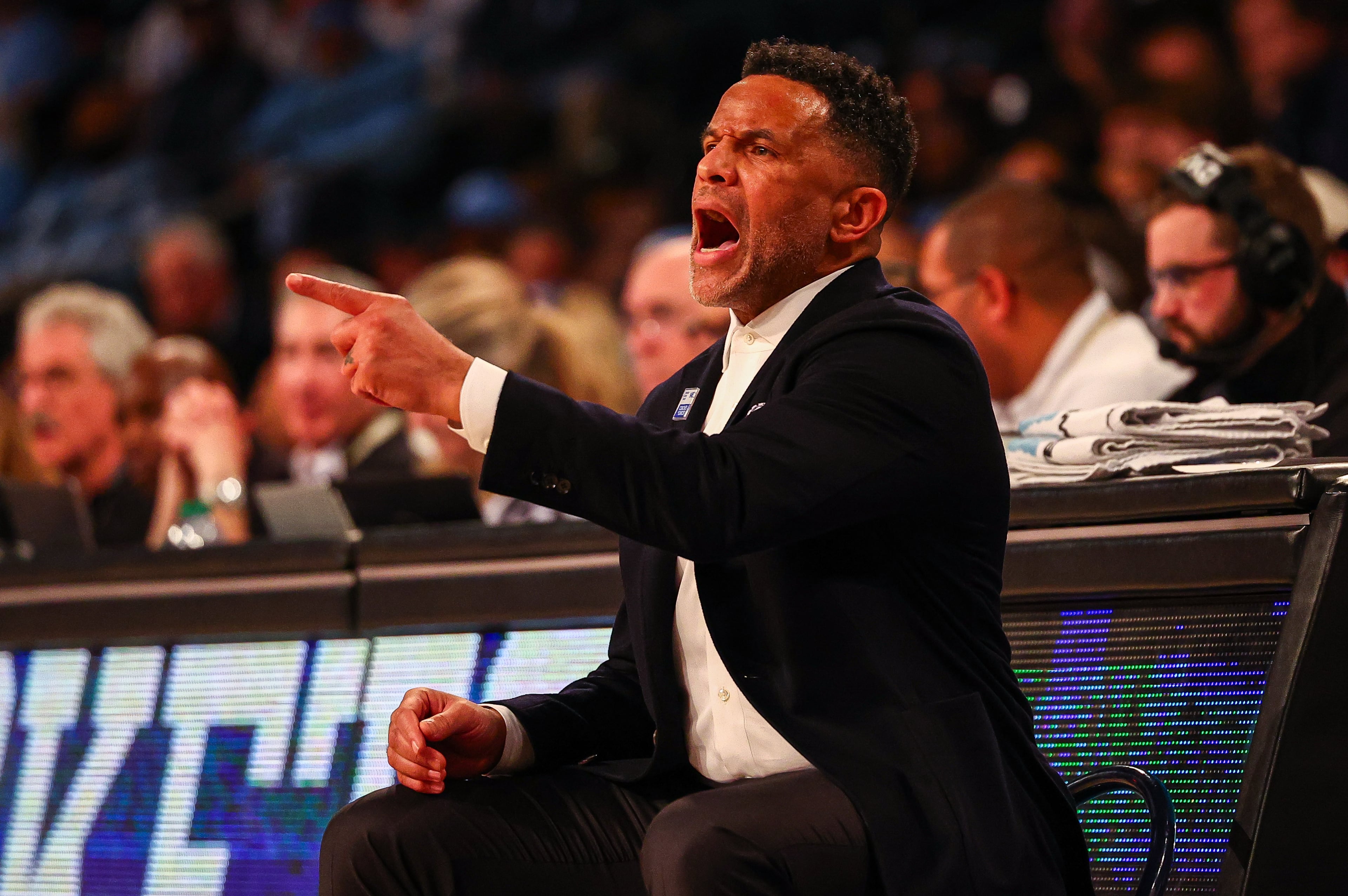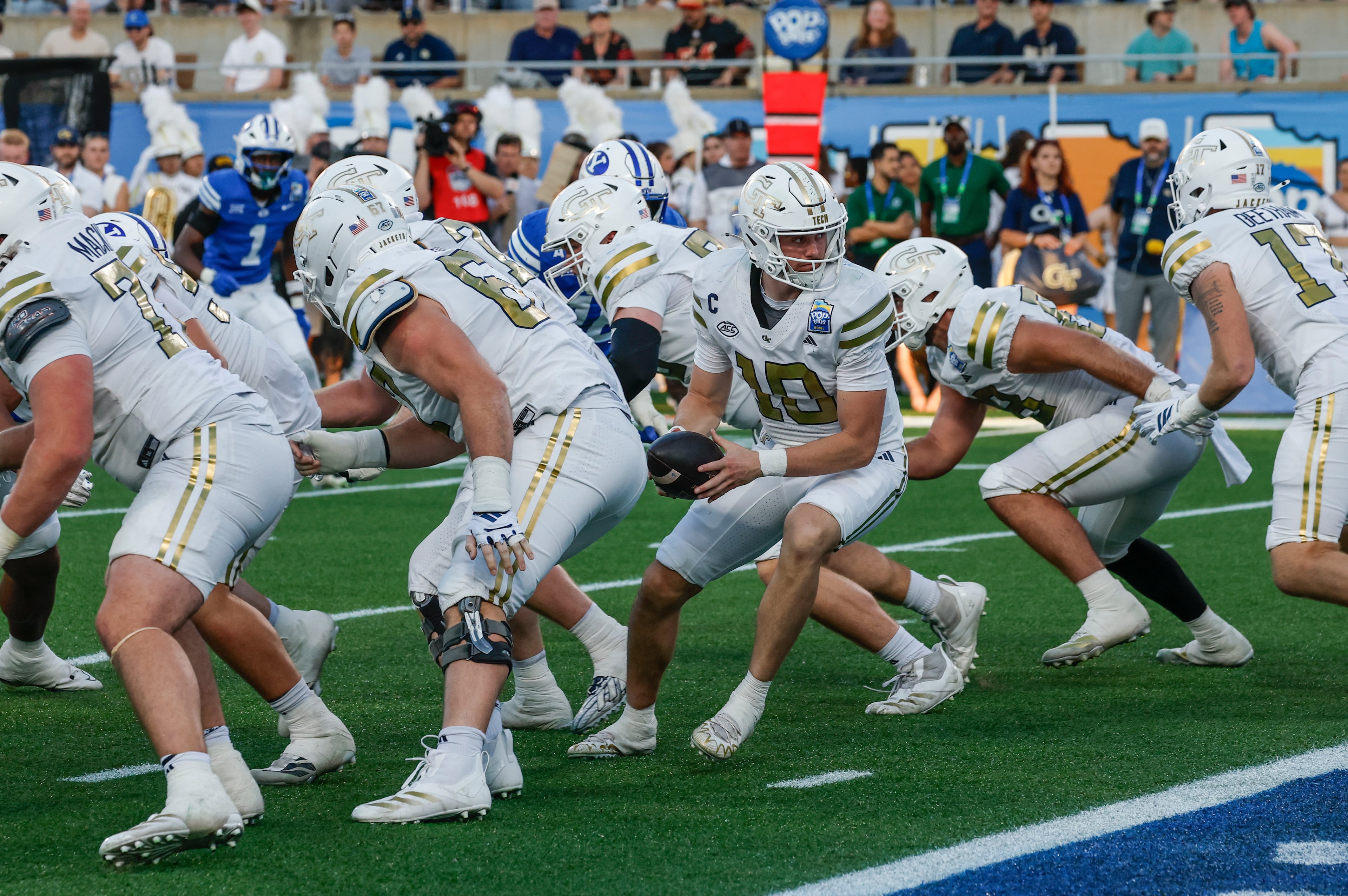As Georgia Tech’s run game struggles, Geoff Collins keeping faith

With a deep group of talented running backs and an experienced offensive line, Georgia Tech didn’t seem a candidate to be in the bottom half of the ACC in rushing offense.
Yet, as the Yellow Jackets prepare this week for their Saturday night matchup at Virginia, they stand ninth in the conference with 166.8 rushing yards per game. Perhaps more important, the Jackets are 11th in yards per carry at 4.21. Last season, Tech was sixth in the ACC in rushing offense (190.8 yards per game) while gaining 4.7 yards per rush.
“A lot of faith in our run game,” coach Geoff Collins said Tuesday at his weekly news conference. “Just continue to work to get better.”
The Jackets were rolling through four games at 196.3 rushing yards per game and 4.7 yards per carry. But Pitt locked up the Jackets, limiting them to 73 rushing yards on 31 carries, the second lowest total and per-carry average (2.35) for the Jackets in Collins’ tenure. Running back Jahmyr Gibbs was limited to an unthinkable minus-10 yards on 10 carries.
The following week against Duke, Tech gained 143 yards on 39 attempts, 3.7 yards per carry. Both were below the averages for Duke this season (165.4 yards per game, 4.29 yards per carry).
Gibbs ranks 21st in the ACC in rushing yards per game (46.5) after averaging 65.7 yards per game as a freshman last season.
Offensive coordinator Dave Patenaude said that Gibbs has played “fine” and the lower numbers have nothing to do with anything he has or hasn’t done. Patenaude attributed the difficulties to defenses crowding the line with defenders.
“If I’m a (defensive) coordinator, I’m saying, ‘I’m not going to let Jeff Sims run the ball, and I’m not going to let Jahmyr get loose,’” Patenaude said. “So how do I do that? I’m either going to blitz you every play like Pitt did or I’m going to overload the box.”
It likely is not a coincidence that the Jackets’ run-game production fell off against Pittsburgh and Duke just as the offensive line was dealing with injuries. Against Pitt, right guard Ryan Johnson played through an injury after minimal practice time during the week and left guard Kenny Cooper did not play.
Against Duke, right tackle Jordan Williams left the game in the first quarter with an apparent knee injury, with Johnson moving out to replace him and William Lay taking Johnson’s spot at right guard, meaning two different spots on the line were sub-optimal.
The Jackets line has had some problems holding blocks in the past two games or being quick enough to get to linebackers, freeing defenders that even a back as superior as Gibbs can’t always outrun.
It’s not clear if Tech’s line will be at full strength for Saturday’s game. A top backup, Nick Pendley, also didn’t play against Duke. Collins said Tuesday that he had spoken with a couple of the backup linemen, noting that many hadn’t played much in games, but sharing his confidence in them to perform if necessary.
“If guys have to step up and play, then we expect them to play at a high level,” Collins said.

Still, as defenses are geared to stop the run, it has opened up the passing game. Against Pitt, even as Gibbs had negative rushing yardage, he caught six passes for 125 yards, a career high.
“So that’s why on some of the pass stuff, he’s been really effective and that’s why our (run-pass option) game has been so good, because if you overload the box, there’s things that are happening on the edge that you’re going to take advantage of,” Patenaude said.
Tech has at least two factors in its favor against the Cavaliers. One is that Virginia’s defense ranks last in the ACC in rushing yards per game (188.1) and yards per carry (5.0). Another is that Tech is coming off its open date, which enabled Tech coaches to self-scout and develop solutions for problems.
“There’ll be some wrinkles there, too,” Collins said.
Virginia has given up five runs of 50 yards or more, most in the ACC. Patenaude would be all for Gibbs making it six.
“It takes a lot of pressure off the offensive coordinator on that drive,” he said wryly. “But he’s still hitting his reads, he’s running the ball hard, he’s doing the things that he needs to do. And then hopefully, the second half of the season, he just cracks a few more of those, gets a little bit more momentum.”



